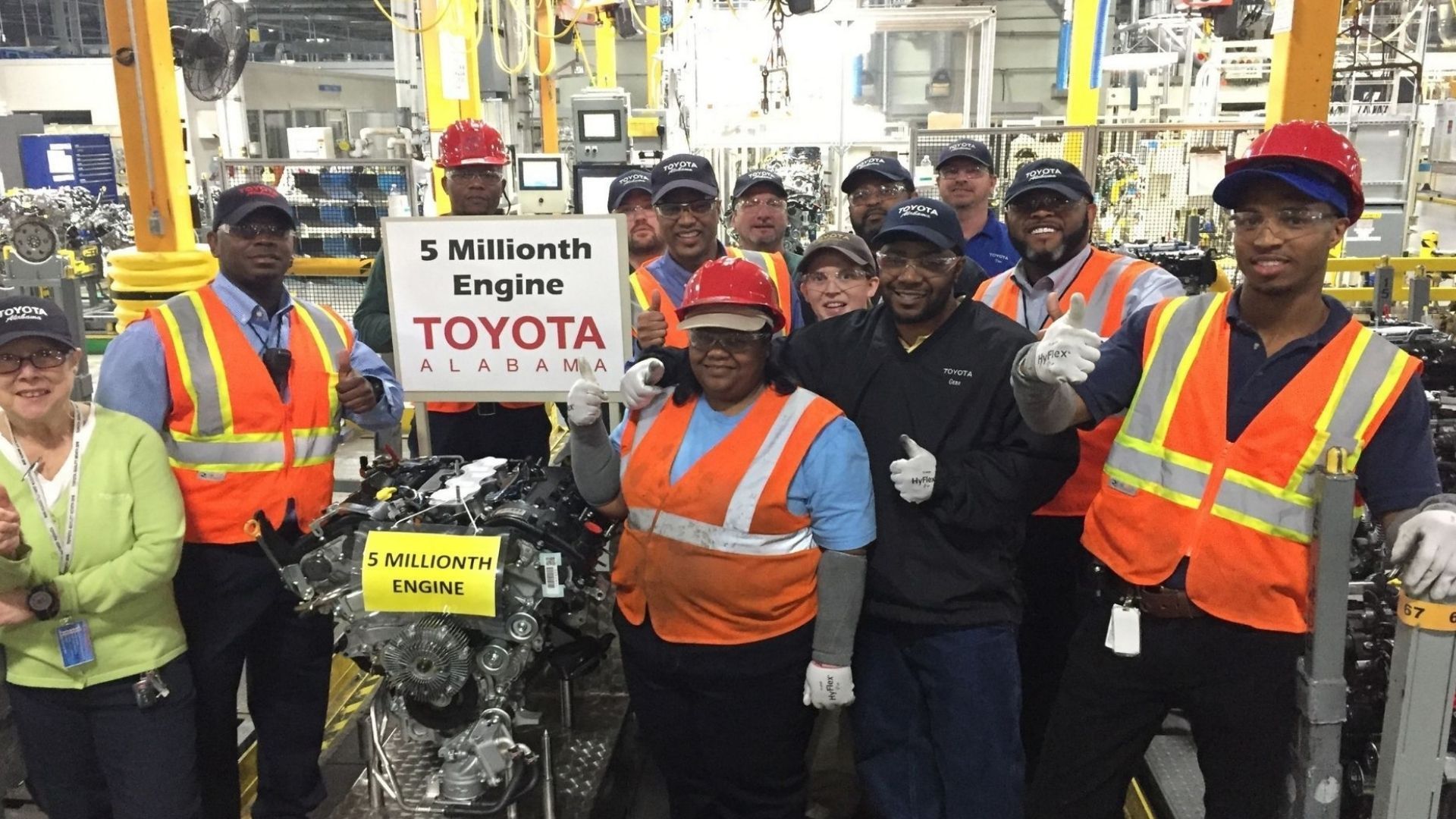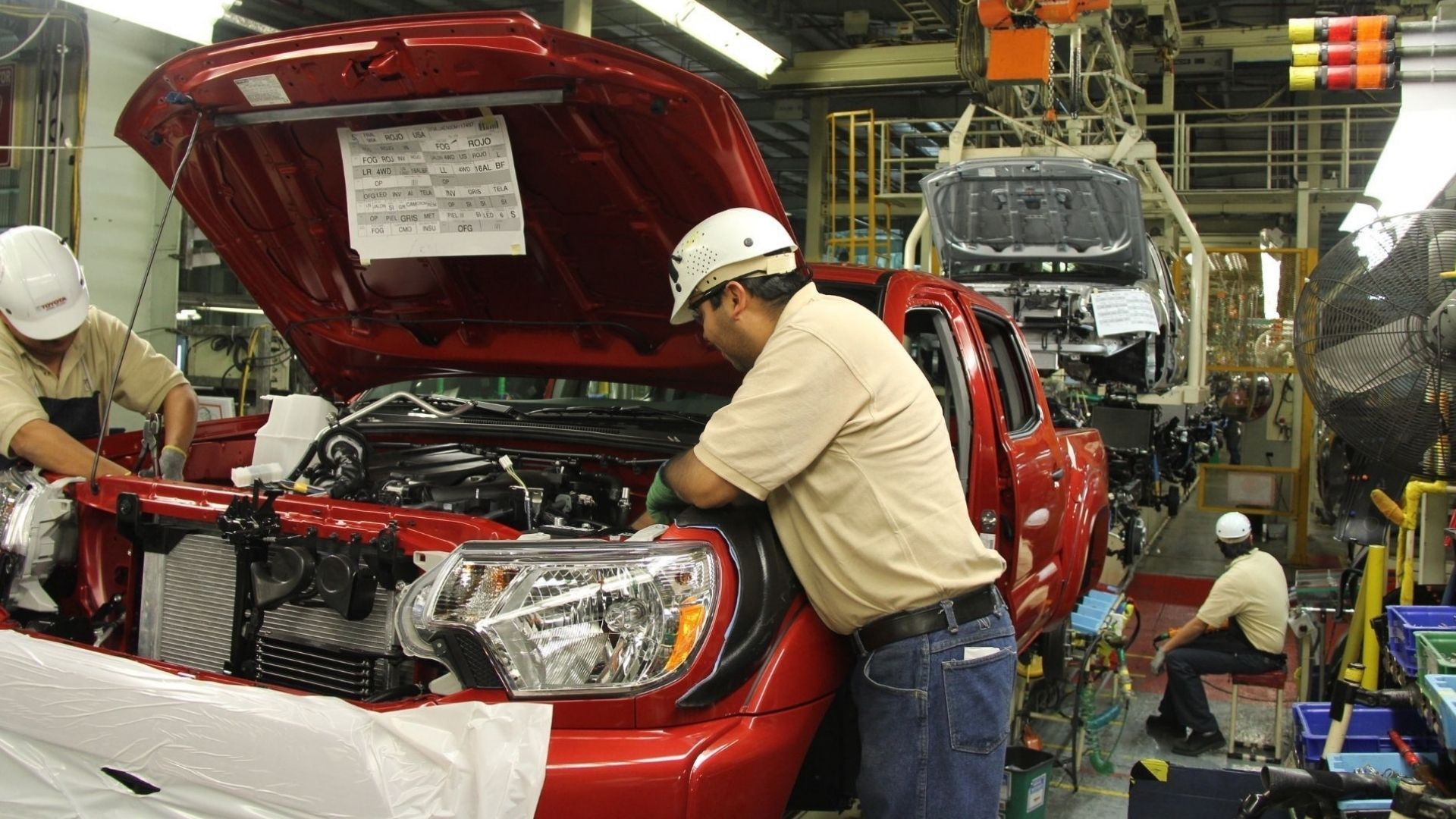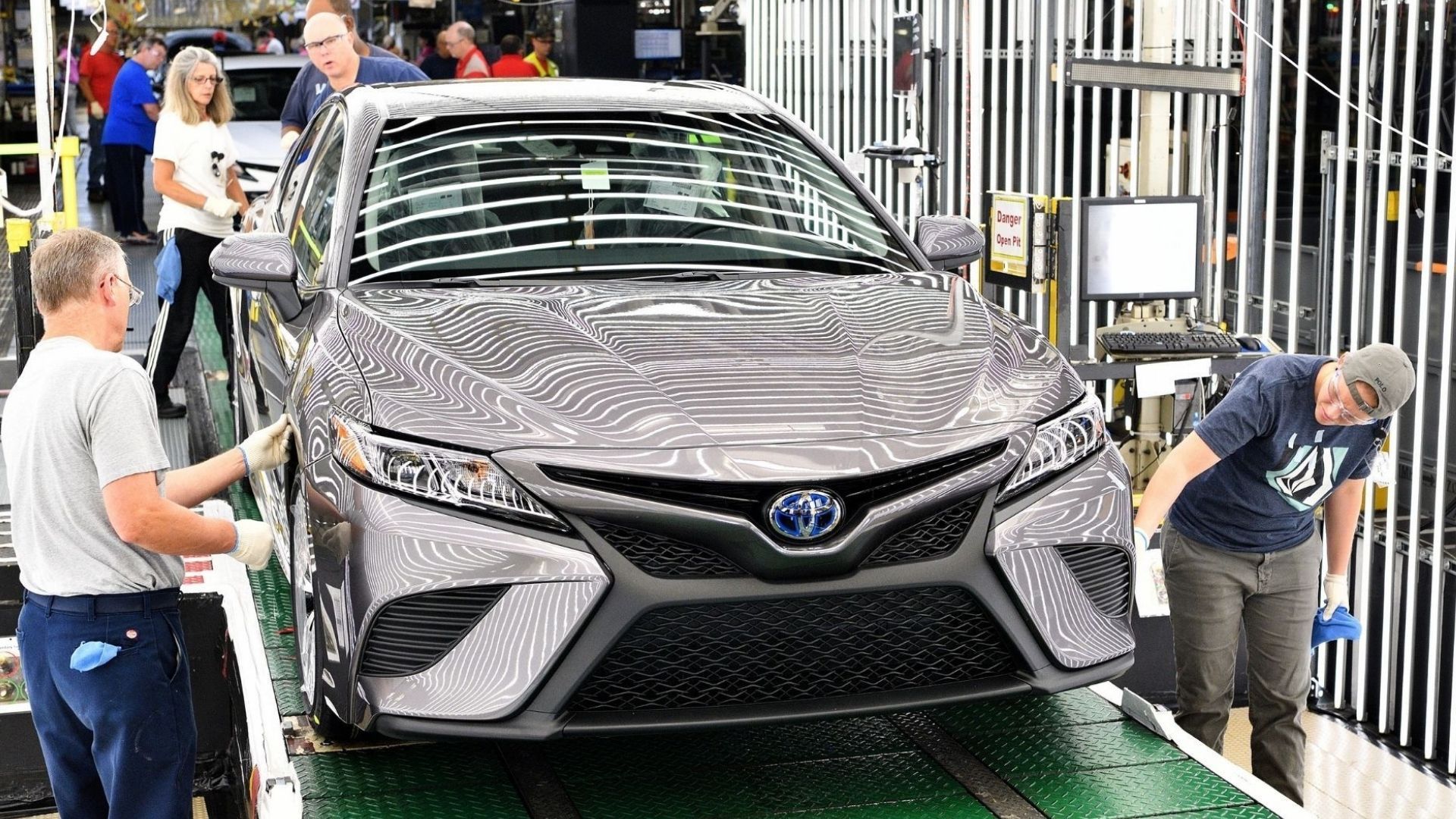It’s the first time ever…
Last year was crazy, thanks in no small part to the chip shortage affecting automotive production. It might have also helped seal the deal for Toyota, which for the first time ever edged out GM for the top sales slot in the United States. That’s right, for all of 2021 Toyota sold about 2.3 million cars in this country versus about 2.2 million sold by GM.
Find out what car color is poised to become number one in the world here.
Since 1931, GM has dominated sales in the United States, coming in at the top spot every year. To be knocked off its perch not by Chrysler or Ford has really got to hurt, marking what might be a long-term shift in Americans’ car shopping habits.

Of course, it helps that up until late August Toyota was able to sidestep the chip shortages for the North American market. The same couldn’t be said for GM, which idled many production lines and scaled back the volume on others. Then, in an unexpected twist, after having to slash production before, Toyota found a source for chips and ramped up production to full capacity at the start of December, allowing it to finish the year strong.

Before it declared bankruptcy in 2009, GM had often held the crown of the world’s largest automaker, but it has never assumed that role since. However, even domestically GM has been retreating under the direction of CEO Mary Barra. Most notably, GM has largely abandoned the sedan market, leaving Toyota, Hyundai, Nissan, Kia, and others to snatch up customers in that very large market segment. Instead, GM has chosen to focus on vehicles with larger profit margins, including bringing the Hummer back as a luxury electric truck.

While it’s not entirely out of the woods on the chip shortage, GM production volume does appear to be picking up again. However, it’s too late for the automaker to gain ground on Toyota and keep its crown. The real test will be if it surges back to number one in the US for 2022 or if its top rival widens the gap. However, news of chip production in China being trimmed back could spell trouble for automakers in the coming months, just as they’ve been recovering from the disaster of 2021.





